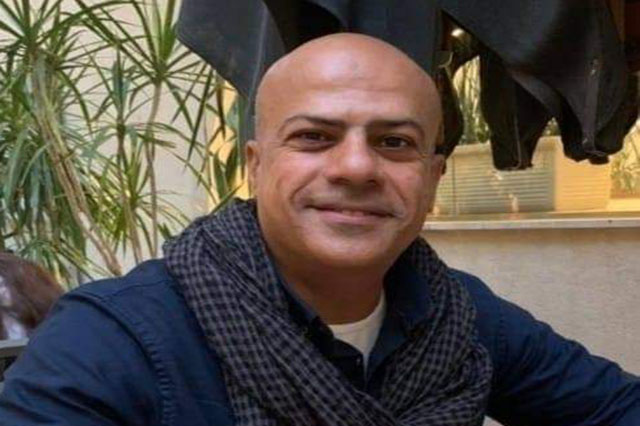Cairo – Egypt’s public prosecution said on Tuesday that an investigation showed “no criminal suspicion” in the death of economist Ayman Hadhoud, who died in a state mental health facility last month.
Hadhoud went missing on February 5, according to his family, who alleged he had been detained.
His brother Omar Hadhoud had told AFP that the family was advised on Saturday to “retrieve the body from the Abbasiya” mental health facility.
ALSO READ | Egypt’s jailed dissident Abdel Fattah becomes British, says family
“According to official records in the prosecution, Ayman died on March 5,” his brother had said.
A police statement on Sunday denied he had been “forcibly disappeared”.
The prosecution said in a statement released early Tuesday that Hadhoud died on March 5 of “hypotensive shock and cardiac arrest”.
“The prosecution examined his body and found no injuries, and called in a health inspector to conduct an external examination which confirmed no criminal suspicion in his death, and police investigations confirmed no criminal suspicion in his death,” the statement said.
The results of a separate autopsy the prosecution ordered on Monday have yet to be released.
Hadhoud was a member of the liberal Reform and Development Party and an economic policy adviser to the party’s founder Mohamed Sadat, the nephew of former president Anwar Sadat.
Mohamed Sadat has recently emerged as an unofficial negotiator on behalf of figures imprisoned under the administration of Egyptian President Abdel Fattah al-Sisi.
Brother still sceptical
Medical personnel determined that Hadhoud suffered from “schizophrenia”, “delusions of persecution” and “delusions of grandeur”, Monday’s prosecution statement said.
It included testimony from Hadhoud’s other brothers Adel and Abu Bakr, who said the deceased had a history of “disordered behaviour”.
ALSO READ | Egypt economist dies, police denies ‘forced disappearance’
The pair “do not suspect criminal cause to their brother’s death”, according to the prosecution statement.
But Omar Hadhoud on Tuesday rejected the statement, saying he had been questioned by the prosecution and “refused to rule out criminal suspicion” over his brother’s death.
He told AFP he had inspected his brother’s body and seen signs of face and skull fractures, but was unsure whether this was the result of the autopsy.
“I told them I don’t know who was responsible for his death, but he was with the interior ministry and the hospital” when he died, he added.
The interior ministry said on Sunday that Hadhoud was placed in a mental health facility on February 6 after attempting to break into an apartment in central Cairo.
But Omar Hadhoud, who is also a lawyer, disputed this account, noting that “there would have been a court case”.
He said that three days into Ayman’s disappearance, Adel Hadhoud was called into the Al-Amiriya police station “to collect him” but was interrogated instead.
“And then they completely denied detaining Ayman”, Omar Hadhoud had told AFP.
ALSO READ | Egypt teen jailed over online shaming that led to girl’s suicide
Mushira Khattab, head of Egypt’s state-affiliated National Council for Human Rights, called on Sunday for an investigation into “allegations that Dr. Ayman Hadhoud had been forcibly disappeared”.
Rights groups say Egypt is holding some 60 000 political prisoners, while Sisi and his supporters insist there are none.
Egypt has recently freed several prominent political detainees, raising hopes for an easing of a sweeping crackdown on dissent, but rights activists say repression remains “systematic”.
Follow African Insider on Facebook, Twitter and Instagram
Source: AFP
Picture: Twitter / @maitelsadany
For more African news, visit Africaninsider.com


